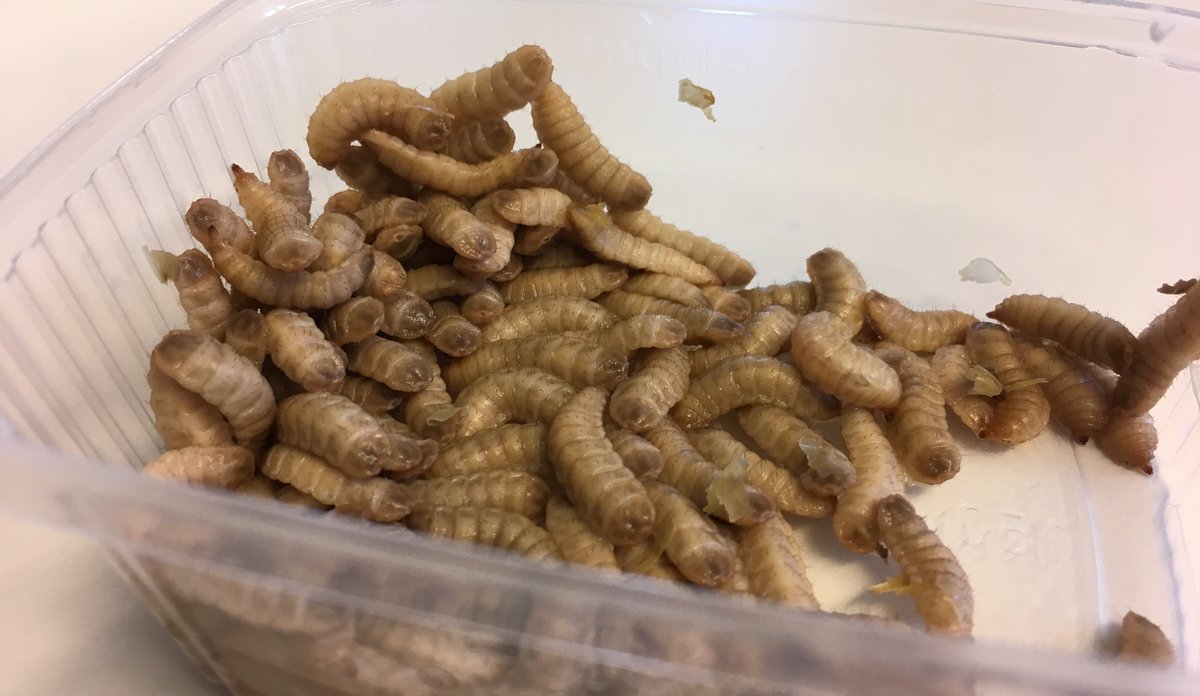Fluelarver

Larvae produced with sludge from aquaculture facilities become rich in marine fatty acids such as EPA and DHA, in addition to minerals like iron, zinc, and selenium.
Photo: Nina Liland / Institute of Marine ResearchThe larvae of the black soldier fly have long been in the spotlight of researchers. They have a unique ability to convert dead organic material, such as food waste or plants, into nutrient-rich protein and fat.
The larvae become nutrient-rich and work well as feed for salmon, previous studies show.
Now, researchers are testing whether the larvae can be fed on sludge from land based aquaculture facilities.
Currently, regulations prevent these larvae from being used as insect meal in feed for salmon or other animals. In Norway, manure and sludge are not permitted as feed for insects, as it can only contain plant products.
Researchers are also examining levels of heavy metals in the larvae. In a recent study, mercury and arsenic exceeded the allowed levels for feed ingredients set by the EU, but only in larva groups that received more than 80 percent sludge in their feed. Researchers also did not find residues in the insect larvae of typical viruses and bacteria that can cause disease in salmon.
However, more research is needed to confirm that sludge can be used safely as feed for the insect larvae.
Published: 30.10.2023
